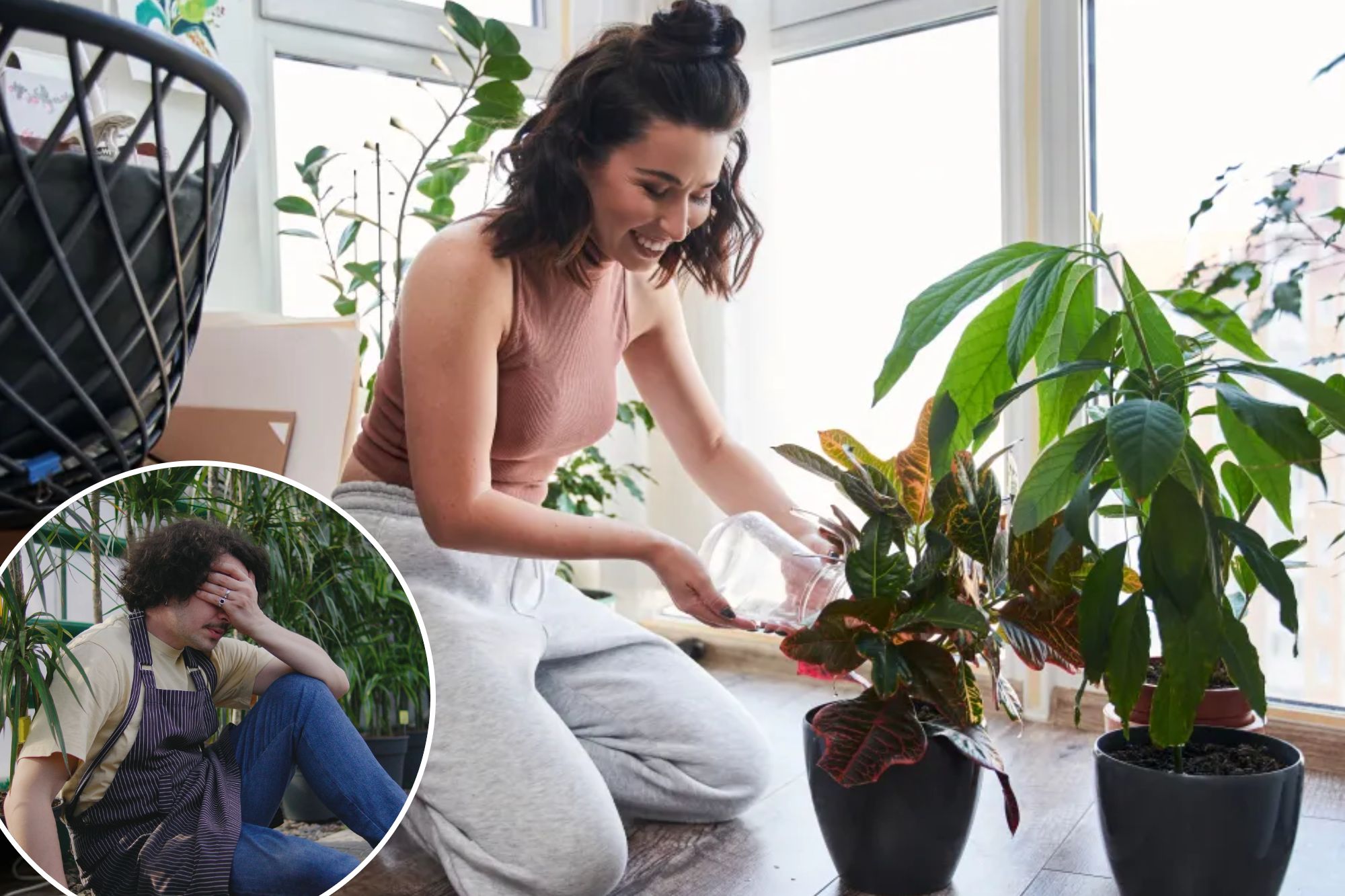Top Stories
Indoor Plants Boost Well-Being, But Too Much Can Increase Stress

BREAKING NEWS: A new study from Stanford University reveals that while indoor plants can enhance mental well-being, too much greenery may actually increase stress levels. This urgent finding is pivotal for anyone looking to create a calming indoor environment.
The research highlights a critical balance: about 20% of indoor space should be occupied by plants to maximize benefits like mood enhancement and stress reduction. Exceeding this threshold could backfire, transforming a serene space into a source of anxiety.
In an innovative approach, Stanford researchers developed the Nature View Potential tool, which measures visual exposure to natural elements. Lead author Eva Bianchi explained the tool’s functionality, stating, “It calculates how many of those rays that are coming from your eyes are seeing natural elements.”
The study involved 412 volunteers who experienced various indoor environments, simulating workplaces decorated with different levels of greenery. Participants were tasked with challenging activities to gauge stress responses. Preliminary questionnaires assessed their well-being before the experiment, which introduced stressors to evaluate the impact of plants.
Bianchi confirmed that the ideal plant density for a 13-square-meter room is around 17 plants plus a window view of trees. “Any nature helps, but if you really want to see an improvement, you have to get up to around that value,” she said.
However, when the greenery surpassed 60%, participants reported heightened stress. “I wasn’t expecting this at all,” Bianchi admitted. Some participants described such environments as “overwhelming” and “probably a nightmare to try to get anything done.”
The research underscores that it’s not just the number of plants that matters but also the emotional connection to them. Those who felt attuned to their greenery experienced greater mental and physical benefits. “You don’t just put a bunch of nature inside the space,” Bianchi advised. “You ensure that the nature will successfully make occupants feel connected.”
These findings are timely as the trend of incorporating indoor plants into various settings—such as offices, schools, and hospitals—continues to grow. Studies suggest that plants can boost workplace productivity by up to 15% and enhance focus in educational environments. Furthermore, patients recover faster and require fewer painkillers when their rooms include greenery.
Looking ahead, the Nature View Potential tool aims to assist designers in optimizing indoor plant arrangements, ensuring every space strikes that delicate balance between comfort and calm.
As the indoor plant craze flourishes, understanding how to effectively incorporate greenery is crucial for maximizing well-being. These latest developments from Stanford University are set to redefine how we create our indoor jungles—promoting not just aesthetic appeal but also genuine mental health benefits.
Stay tuned for more updates as researchers continue to explore the intricate relationship between indoor nature and our well-being.
-

 Science3 weeks ago
Science3 weeks agoInventor Achieves Breakthrough with 2 Billion FPS Laser Video
-

 Health4 weeks ago
Health4 weeks agoCommunity Unites for 7th Annual Into the Light Walk for Mental Health
-

 Top Stories4 weeks ago
Top Stories4 weeks agoCharlie Sheen’s New Romance: ‘Glowing’ with Younger Partner
-

 Entertainment4 weeks ago
Entertainment4 weeks agoDua Lipa Aces GCSE Spanish, Sparks Super Bowl Buzz with Fans
-

 Business4 weeks ago
Business4 weeks agoTyler Technologies Set to Reveal Q3 Earnings on October 22
-

 Entertainment4 weeks ago
Entertainment4 weeks agoMother Fights to Reunite with Children After Kidnapping in New Drama
-

 World4 weeks ago
World4 weeks agoR&B Icon D’Angelo Dies at 51, Leaving Lasting Legacy
-

 Health4 weeks ago
Health4 weeks agoCurium Group, PeptiDream, and PDRadiopharma Launch Key Cancer Trial
-

 Entertainment4 weeks ago
Entertainment4 weeks agoRed Sox’s Bregman to Become Free Agent; Tigers Commit to Skubal
-

 Health4 weeks ago
Health4 weeks agoNorth Carolina’s Biotech Boom: Billions in New Investments
-

 Science4 weeks ago
Science4 weeks agoNorth Carolina’s Biotech Boom: Billions Invested in Manufacturing
-

 Top Stories4 weeks ago
Top Stories4 weeks agoFormer Mozilla CMO Launches AI-Driven Cannabis Cocktail Brand Fast









